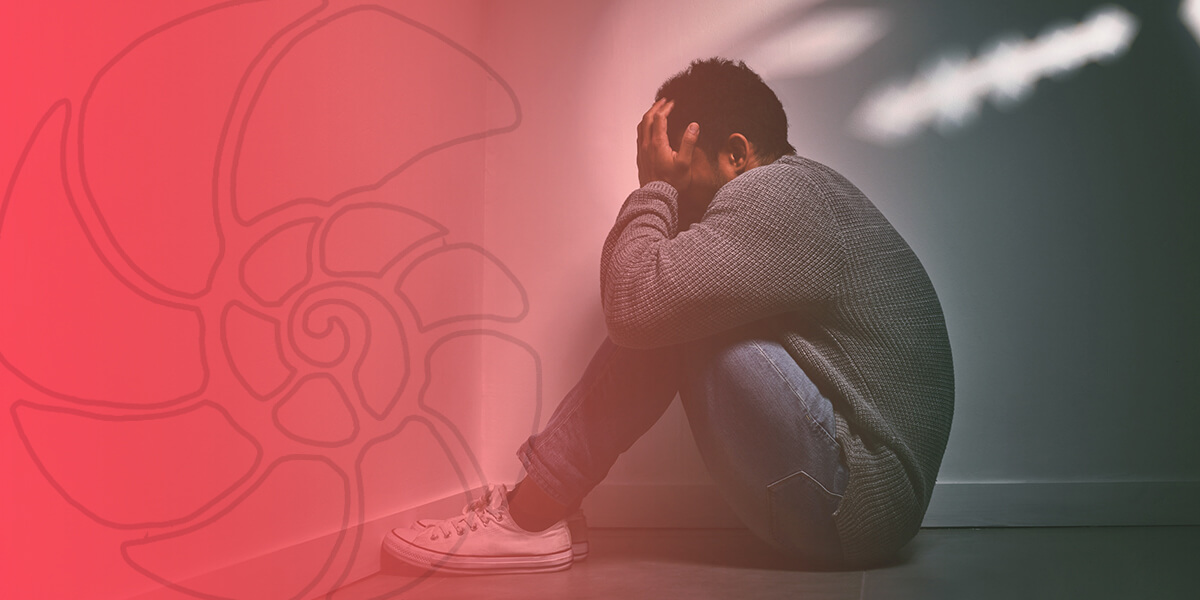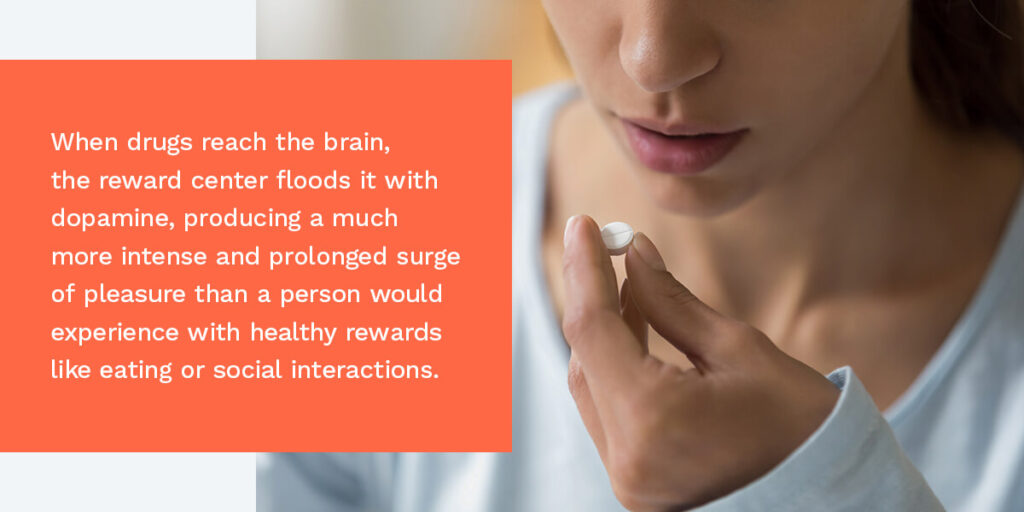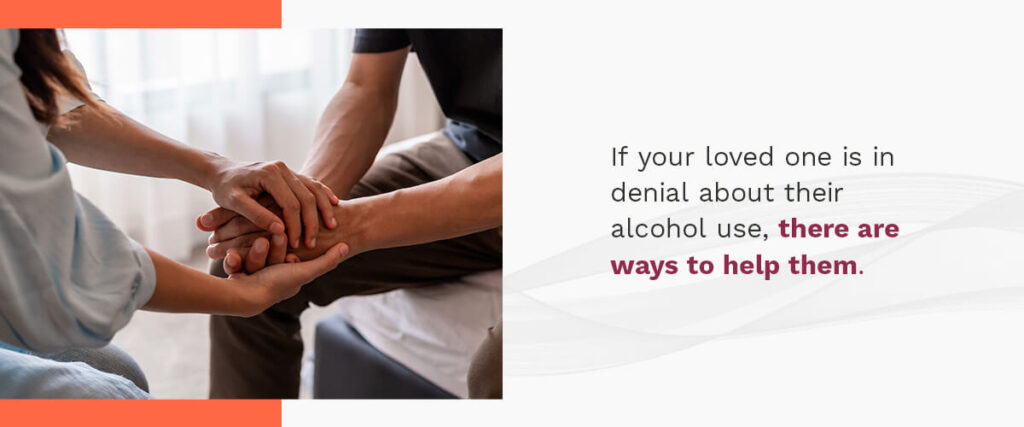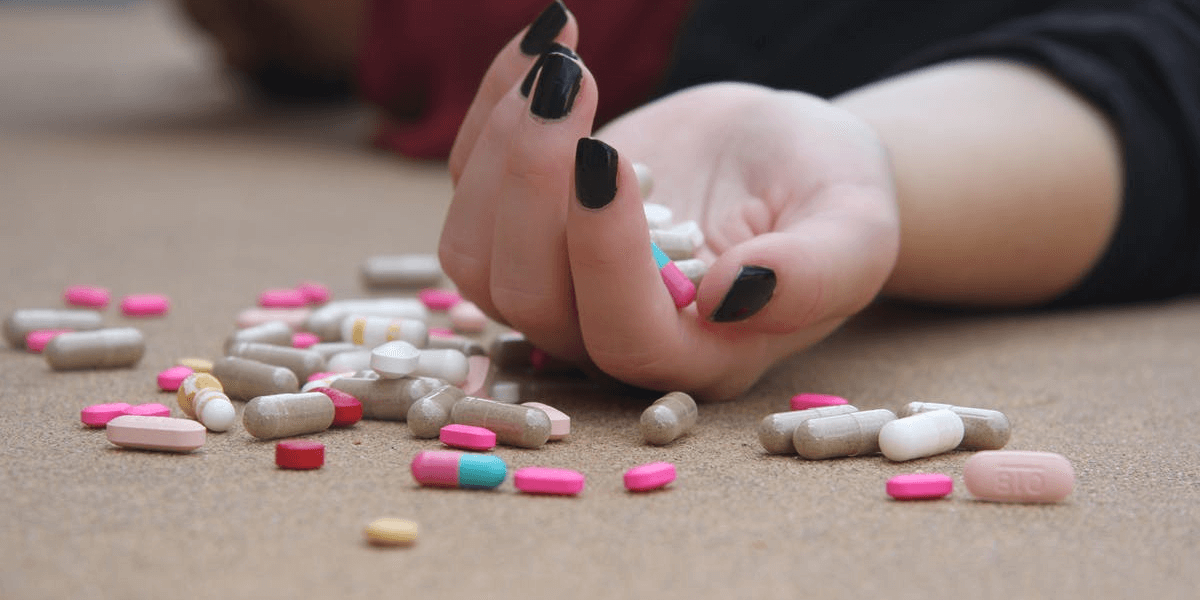What Causes Addiction in the Brain?
Addiction is a complex and often devastating condition that's shockingly widespread — one study revealed that 40.3 million Americans struggled with a substance use disorder in 2020. While the causes of addiction are multifaceted and can vary from person to person, one thing is clear: Addiction is a brain disease.
Researchers have made significant strides in understanding addiction's underlying neural mechanisms and how they contribute to developing and maintaining addictive behaviors. By examining how drugs and other addictive substances interact with the brain's reward system, scientists are uncovering new insights into the nature of addiction and how best to treat it.
Join us as we dive deeper into what causes addiction in the brain and what it means for those struggling.
Understanding the Brain's Reward System
The brain's reward system is a network of neural circuits that plays a crucial role in regulating feelings of pleasure and motivation. At the heart of this system is a group of structures called the basal ganglia, which are involved in positive forms of motivation and forming habits and routines.
When we engage in pleasurable or rewarding activities, such as eating, socializing or having sex, we activate our brain's reward system, which responds by releasing a chemical called dopamine. This dopamine surge produces a sense of pleasure and satisfaction, signaling the brain to remember the activity so it can experience the same feelings again. Neural connectivity changes make it easy to repeat the action over and over again without much thought, leading to habit formation.
There are many ways to trigger dopamine release naturally, including the following:
- Physical exercise
- Listening to music
- Meditating
- Spending time in nature
- Engaging in creative pursuits like painting or writing
- Spending time with loved ones
- Engaging in acts of kindness or volunteering
- Getting enough sleep
- Reducing stress
- Eating a nutritious diet rich in protein and healthy fats
What Causes Addiction in the Brain?
Natural, healthy dopamine triggers aren't the only way to stimulate the brain's reward center. Unfortunately, it can be hijacked by drugs and other addictive substances, leading to an addiction.
Often, people turn to addictive substances when they feel stressed or depressed. When these drugs reach the brain, the reward center floods it with dopamine, producing a much more intense and prolonged surge of pleasure than a person would experience with healthy rewards like eating or social interactions. This process starts to change the brain chemistry, and the person needs increasing amounts of the substance to feel good.
Genetics and environmental factors can also influence addiction. Certain genes may make individuals more susceptible to addiction, while environmental factors like stress, trauma and peer pressure can increase addiction risk. Additionally, early exposure to drugs or alcohol can increase the likelihood of addiction later in life.
What Does the Brain Do During Addiction?
As a person continues to feed their addiction, the brain adapts to the flood of dopamine by reducing the number of dopamine receptors. This is known as building tolerance and means the person needs more and more of the drug to achieve the same level of pleasure.
As addiction progresses, the reward system in the brain of an addict becomes increasingly dysregulated. Pursuing drugs or other addictive substances becomes the individual's primary focus in life, while activities they once enjoyed lose their appeal. This is because the brain's reward system has become hypersensitive to drugs and desensitized to other rewards.
Addiction can also affect a person's focus, learning and memory, as well as their judgment and decision-making ability. The pursuit of drugs becomes a habit rather than a conscious decision.
Addiction can also change other areas in the brain, including the prefrontal cortex and the amygdala. The prefrontal cortex is involved in thinking, planning, problem-solving, decision-making and impulse control. The amygdala helps regulate emotions like irritability, anxiety and unease, which individuals feel when a drug wears off, prompting them to seek more of it.
These changes in brain function can lead to compulsive drug-seeking behavior and a reduced ability to experience pleasure from other activities.
Even when the individual wants to quit their addiction, the brain's reward system can make it incredibly difficult to do so, as the withdrawal symptoms and cravings can be overwhelming.
Can an Addicted Brain Heal?
The good news is that addicted brains can heal. While addiction changes the brain's structure and function, research has shown that the brain has a remarkable capacity for neuroplasticity. Neuroplasticity is the brain's ability to form new neural connections and reorganize existing ones, allowing it to adapt to environmental changes and recover from injury or damage.
Neuroplasticity indicates that the brain is not a fixed, static organ but rather a dynamic and adaptable one that can change in response to learning and new experiences. This means that with the right treatment and support, it's possible for the brain to recover from the effects of addiction.
One of the most essential factors in the brain's ability to heal from addiction is the individual's motivation to change. This motivation can come from many different sources, including a desire to improve one's health, relationships or quality of life.
Another important factor in the brain's ability to heal from addiction is the availability of effective treatments and support. Various evidence-based addiction treatments, including behavioral therapies and medications, have helped individuals overcome their addictions. Emotional support and encouragement from friends, family and peers can also be a key part of recovery.
Remember that addiction recovery is not a one-size-fits-all process, and the healing timeline can vary widely depending on the individual and the severity of their addiction. Some may experience a relatively quick recovery, while others may require ongoing support and treatment to maintain sobriety.
Start Healing Today at Transformations By The Gulf
Addiction is a complex disorder that's largely influenced by brain chemistry. While some people are more susceptible to addiction than others, anyone can develop an addiction upon exposure to substances or behaviors that trigger the brain's reward system.
Understanding the underlying mechanisms of addiction allows us to develop more effective prevention and treatment strategies that address the root cause of this condition. Ultimately, breaking the cycle of addiction requires a combination of medical, psychological and social support to help individuals overcome their dependence and achieve long-term recovery.
If you or someone you care about is ready to heal from an addiction, you can find support at Transformations by the Gulf in beautiful St. Pete Beach, Florida. We offer a combination of holistic practices and traditional therapies to help clients overcome their addictions and reclaim their lives. Get in touch today to discover which programs and services are best for you.
If you or someone you know would like to know more about Transformations by the Gulf Substance Abuse Treatment Center Give us a Call 24/7 (727)498-6498
The success of a person’s recovery depends on the level of personalized treatment provided. It is important to find an addiction treatment program that works. When we say our treatment is individualized, we mean that we craft a program that is tailored to address the client’s unique physical, mental and emotional needs.
In the client’s first 24 hours with us, we’ll evaluate their current state and work to understand what challenges they need to overcome. They’ll also have an initial session with our doctor and meet with one of our licensed mental health professionals.
After the initial evaluations, we’ll design a treatment plan with the sole mission of helping the client overcome and heal from addiction. Their program will focus on things such as:
- Addressing and Identifying root causes of addiction.
- Creating a support system.
- Developing healthy stress management techniques.
- Eliminating Substance use.
- Learning how to communicate emotions effectively.
- Maintaining a healthier lifestyle.
- Repairing damaged relationships.
Our Facility is near the beach and offers a comfortable setting for substance abuse treatment and recovery.
What a Day is Like in Our Treatment Facility.
Why Transformations by the Gulf?
How to Talk to an Alcoholic in Denial
How to Talk to an Alcoholic in Denial
The first step in getting addiction support is admitting you have a problem. However, some people are in denial about their addiction and don't believe they have a problem or that it's not as bad as it actually is. Denial can stop a person from seeking the treatment they need to improve their overall well-being.
If your loved one is struggling with alcohol addiction but is in denial about their problems, it can cause tension in your relationship and personal life. Learning how to talk to an alcoholic in denial can help encourage your loved one to get the help they need.
Why Does Addiction Cause Denial?
Denial is when someone downplays or ignores their reality and is often the result of deeper pain, such as guilt, shame, loneliness or fear of the future. When people want to suppress these uncomfortable feelings, they may turn to substances like alcohol or drugs. These substances help people ignore their feelings, and their denial can also extend to their substance use, where they may downplay the extent of their addiction or not believe it exists.
Addiction can be a vicious cycle where it helps comfort people but is also a significant problem. When people are in denial about their addiction, they will often be in denial about their substance use becomes impossible to ignore. While someone is trying to protect themselves from their uncomfortable feelings, turning to substances and addiction can cause more destruction than ever, and not just for themselves. Addiction affects everyone involved in a person's life, causing tension and grief for families and loved ones.
While denial can be a temporary way to deal with a traumatic or stressful situation, it can be harmful in the long run since it will prevent someone from addressing the root of the problem or seeking help. Turning to alcohol often deepens a person's denial. Some signs that your loved one may be struggling with denial include:
- Comparing their alcohol use with others, saying they're not as bad as others.
- Rationalizing that they need alcohol after a long day or stressful event.
- Blaming other people in their life for their problems.
- Minimizing their alcohol use because they believe they can still take care of their responsibilities.
6 Tips to Talk to Someone in Denial
If your loved one is in denial about their alcohol use, there are ways to help them. Below are some tips to help you learn how to help an alcoholic in denial:
1. Use "I" Statements
When talking to someone in denial about their alcohol use, you want to stick with "I" statements instead of "you." Using "you" statements can make a person feel like you're blaming them for what's gone wrong in their life, making them resistant to getting help. Instead, you should use "I" statements to talk about how their alcohol use has affected you and your relationship with your loved one, making it easier for them to understand the impact their alcohol use has had on the people around them.
2. Be Prepared for Negative Reactions
When you confront someone about their addiction, they may not react as expected. They may react negatively when faced with the reality of their situation, especially if they're in denial. It's essential to remember that your loved one is just trying to protect themselves from their negative experiences. If you're met with an adverse reaction, try not to take it personally. You can also take some time if emotions start to run high and reapproach the situation at another time.
3. Remind Them You're on Their Side
Many people confronted about their alcohol addiction may feel isolated or like they're being judged or targeted. You'll want to remind them that you're on their side and not against them. You should reiterate that you're here to support them through their addiction, and you can even offer them options, such as treatment programs that can help them address their underlying emotions and addiction.
4. Be Clear and Concise
You'll want to have a plan when you approach your loved one. Know what points you want to address so the conversation doesn't devolve into anger or other negative emotions. When you find out what topics you want to discuss, be clear and concise so your loved one understands what you're saying. You should also ensure that you listen carefully when your loved one responds, which will help them feel more supported and understood.
5. Stay on Track
It's also essential to stay on track when talking to your loved one in denial. If you let the conversation devolve, it can quickly turn away from getting your loved one help to something entirely different. Come prepared with your main points and stay on topic to communicate your feelings and concern. You should also come prepared with the following steps, such as encouraging your loved one to seek treatment and helping them to do so.
6. Utilize Support
If your loved one doesn't listen to you, it's best not to push. Instead, take a break from the conversation, find a second person who agrees with you and try again. However, you want to make sure your loved one doesn't feel like they're being cornered.
Remember to approach the conversation with empathy and keep in mind that your loved one is going through challenges in their life that are contributing to their addiction. If your loved one sees that multiple people care and are concerned about their well-being, they'll be more likely to listen and want to seek support with your help.
I've Talked to My Loved One and They Won't Listen. What's Next?
If you're loved one isn't listening to you, it can be challenging to deal with. Unfortunately, people have to choose to recognize their problems and seek help themselves. You can't do this for them, even if you want to.
However, you can continue to show your loved one compassion while telling them the truth. You can be empathetic toward their challenges while being honest about the severity of their addiction and how it's affecting their life and your relationship. You can continue to recommend resources and offer to go with them or support them however possible. You can find addiction programs near you and encourage your loved one to go.
Additionally, you want to ensure you're not supporting your loved one's addiction in any way. You shouldn't drink around them or do anything that may encourage addictive behaviors. You'll want to be clear that you don't support their drinking while still supporting them in other ways.
Contact Transformations By The Gulf to Start Healing Today
If you're loved one is struggling with alcohol addiction, Transformation By The Gulf can help. We are a substance abuse treatment center in St. Pete Beach, Florida. Your loved one can heal in a unique setting with traditional therapies and holistic practices to help your loved one receive comprehensive healing treatment.
Our programs are designed around biological, psychological, social, family and gender-specific needs since everyone's addiction is unique. Our treatments can help your loved one lead a productive, fulfilling and sober life. Contact us now to learn more about our programs and how we can help!
If you or someone you know would like to know more about Transformations by the Gulf Substance Abuse Treatment Center Give us a Call 24/7 (727)498-6498
The success of a person’s recovery depends on the level of personalized treatment provided. It is important to find an addiction treatment program that works. When we say our treatment is individualized, we mean that we craft a program that is tailored to address the client’s unique physical, mental and emotional needs.
In the client’s first 24 hours with us, we’ll evaluate their current state and work to understand what challenges they need to overcome. They’ll also have an initial session with our doctor and meet with one of our licensed mental health professionals.
After the initial evaluations, we’ll design a treatment plan with the sole mission of helping the client overcome and heal from addiction. Their program will focus on things such as:
- Addressing and Identifying root causes of addiction.
- Creating a support system.
- Developing healthy stress management techniques.
- Eliminating Substance use.
- Learning how to communicate emotions effectively.
- Maintaining a healthier lifestyle.
- Repairing damaged relationships.
Are you struggling with addiction and want to learn more? Visit Psychology Today or check out or page on addiction treatments.
Our Facility is near the beach and offers a comfortable setting for substance abuse treatment and recovery.
What a Day is Like in Our Treatment Facility.
Why Transformations by the Gulf?
What is addiction?
Addiction Explained
What is drug abuse and addiction? The explanation of substance use and abuse may be simple: An individual is using or misusing a substance. However, addiction explained is more complicated. The condition is a complex, chronic and progressive disease that, left untreated, will devastate your life whether you are a woman or a man. Addiction knows no age limits or cultural boundaries and cares not whether you are rich or poor. It doesn’t discriminate on your sexual preference, your religious beliefs, or the color of your skin. Addiction is a disease.
Decades of pointed research has proven that addiction alters the brain through small but continual changes to its structure and function. The frontal cortex, which is associated with judgment and decision making, is significantly affected by substance abuse. Neurochemicals and brain circuits that are involved in reward, motivation, memory and inhibitory control are disrupted, making the drug cravings and compulsion to use that much more powerful.
While the initial decision to use drugs may be a voluntary one, eventually, the disease of drug addiction compels a person to continue to abuse drugs despite the plethora of negative consequences associated with it. Since 2000, there have been 700,000 drug overdose deaths in the U.S. Further, 20.3 million Americans are dealing with an active addiction.
What Are the Symptoms of Addiction?
What is drug addiction characterized by? To understand how to explain addiction, you must also consider what happens to the mind and body when someone has the disease. Many symptoms of addiction will be associated with psychological actions and behaviors.
Some trademark symptoms of addiction include:
- Distorted behaviors or thought processes
- Personality changes
- Memory and learning problems
- Continued use in spite of knowing the risks
- Inability to reduce or control the use of a substance
Physically, addiction can be characterized by intense cravings for the substance and severe withdrawal symptoms when the substance is not used. For example, the person may experience flu-like symptoms, gastrointestinal distress, tremors, chills and even seizures with abstinence from certain substances. The individual using a substance can also develop a tolerance to what he or she is taking, which means he or she may need to take more to feel the same effects.
How Do You Treat Addiction?
The good news is that drug addiction, like other chronic diseases, can be successfully treated. Through residential or intensive outpatient (IOP) substance abuse treatment, people are given the tools they need to restructure their lives and reach sobriety.
What is residential treatment and what is intensive outpatient substance abuse treatment? Residential treatment involves 24/7 care while you stay in a facility. IOP involves attending therapy and treatment sessions with certified professionals to overcome addiction.
At Transformations By The Gulf, we offer specific women’s and men’s addiction treatment programs that get to the core psychological and emotional issues of your self-defeating behavior. We utilize modalities to counteract the neurophysiological effects of addiction, so you can regain control of your life.
Our holistic approach to addiction treatment takes place in a serene location that fosters a sense of well-being. Our experiential therapies involve immersion in new, soothing environments where taking steps toward sobriety is easier. Transformations By The Gulf offers IOP, day treatment and residential treatment.
Seeking Treatment with Transformations by the Gulf?
If you or a loved one needs treatment and rehabilitation for substance use, Transformations by the Gulf can help. When entering treatment its common to wonder Is Detox Painful?
Transformations by the Gulf offers individualistic and holistic recovery services. We designed our inpatient and outpatient programs to treat individuals based on biological, psychological, familial and social needs.
Our residential homes and treatment facilities are near the beach and offer a comfortable setting for rehabilitation. If you or a loved one needs help, contact Transformations By The Gulf to learn more about our recovery services.
If you are ready to start planning your treatment process, give us a call. (727)498-6498
You can also find out more information about Transformations by the Gulf by visiting Rehabs.org
What a Day is Like in Our Treatment Facility.
Why Transformations by the Gulf?






